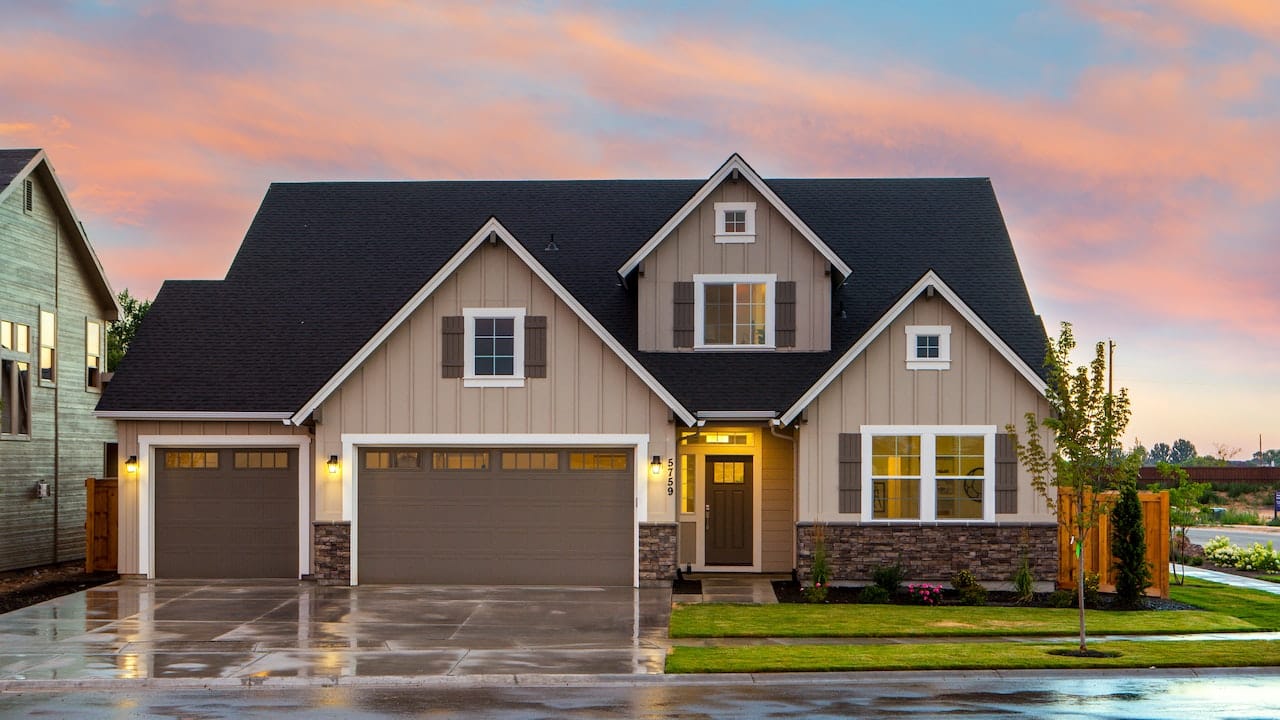7 Reasons Homeownership Is More Expensive Than You Think

If homeownership is the American Dream, it's quickly become one of the most expensive dreams you can imagine.
The dream of homeownership often comes with a hefty price tag that goes beyond the initial down payment and mortgage payments. Many aspiring homeowners underestimate the true cost of owning a home. Those costs add up fast.
In this article, we'll explore seven reasons why homeownership is more expensive than you might think.
7 Reasons Homeownership Is More Expensive Than You Think

1: Down Payment and Closing Costs
One of the most obvious expenses of buying a home is the down payment. While it's true that there are loan programs that allow for lower down payments, a substantial down payment is often required to secure a mortgage with favorable terms. Depending on the price of the home and the lender's requirements, this can be a significant upfront expense.
And this money could have been invested, earning capital gains over the course of a lifetime.
Additionally, prospective homeowners often overlook closing costs. These costs include fees for appraisals, inspections, legal services, and title insurance. Closing costs can add up to thousands of dollars, making the initial cost of homeownership much higher than the purchase price alone.
2: Property Taxes
Property taxes are a recurring expense that homeowners must budget for each year.
The amount you pay in property taxes depends on the assessed value of your home and the local tax rate. In some areas, property taxes can be quite high (especially in states like Texas that don't have income tax), adding a substantial annual expense to your homeownership costs.
It's essential to research property tax rates in your desired location before committing to a home purchase.
3: Homeowners Insurance
Homeowners insurance is another ongoing expense many overlook when calculating the cost of owning a home.
This insurance is necessary to protect your investment from various risks, including fire, theft, and natural disasters. The cost of homeowners insurance can vary significantly depending on factors such as the location of your home, the size of the property, and the coverage options you choose.
4: Maintenance and Repairs
Unlike renting, where the landlord typically covers maintenance and repair costs, homeowners are responsible for the upkeep of their properties. Routine maintenance tasks, such as lawn care, HVAC servicing, and gutter cleaning, can add up over time. Moreover, unexpected repairs, such as a leaky roof or a malfunctioning furnace, can be costly and often occur when least expected.
This is why it's crucial to keep a 6-month emergency fund.
A common rule of thumb is to budget around 1% of your home's value annually for maintenance and repairs. For a $300,000 home, that's $3,000 yearly just to keep your property in good shape.
5: Homeowners Association (Hoa) Fees
If you purchase a home in a community with a homeowners association (HOA), you must pay monthly or annual dues.
HOAs manage common areas and enforce community rules and regulations. While they can provide benefits like neighborhood amenities and a well-maintained environment, these fees can be an added expense that homeowners need to factor into their budgets.
HOA fees can vary widely, depending on the community and the services provided. Some luxury developments may have high HOA fees that cover extensive amenities, while others may charge lower fees for basic maintenance and enforcement.
6: Utilities
While utility costs are not exclusive to homeownership, they are often higher for homeowners than for renters.
This is because homeowners are responsible for all utility bills, including water, electricity, gas, and trash removal. The size of your home, its energy efficiency, and your location can all impact the cost of utilities.
Additionally, homeowners may need to budget for the maintenance and repair of utility systems, such as the HVAC system or the water heater, which can be expensive.
7: Opportunity Costs
When you purchase a home, you tie up a substantial portion of your savings through a down payment and ongoing mortgage payments. This can limit your ability to invest in other opportunities, such as stocks, bonds, or starting a business.
These forgone investment opportunities have a real cost, known as opportunity cost.
For example, if you invest $50,000 in a down payment for a home, which could have generated a 7% annual return in the stock market, you're potentially missing out on thousands of dollars in investment gains each year.
It's essential to consider the opportunity cost of tying up your funds in homeownership.
While homeownership is a significant milestone for many, it's essential to recognize that it comes with a range of expenses that go beyond the initial purchase price.
From down payments and closing costs to property taxes, homeowners insurance, and ongoing maintenance, the true cost of owning a home can be much higher than you might initially think. Additionally, factors like HOA fees, utilities, and the opportunity cost of tying up your savings should not be underestimated.
Before taking the plunge into homeownership, it's crucial to conduct thorough financial planning and budgeting to ensure that you can comfortably afford all the associated costs.
Owning a home can be a rewarding experience, but being prepared for the financial responsibilities that come with it is key to making your homeownership dream a sustainable and enjoyable reality.